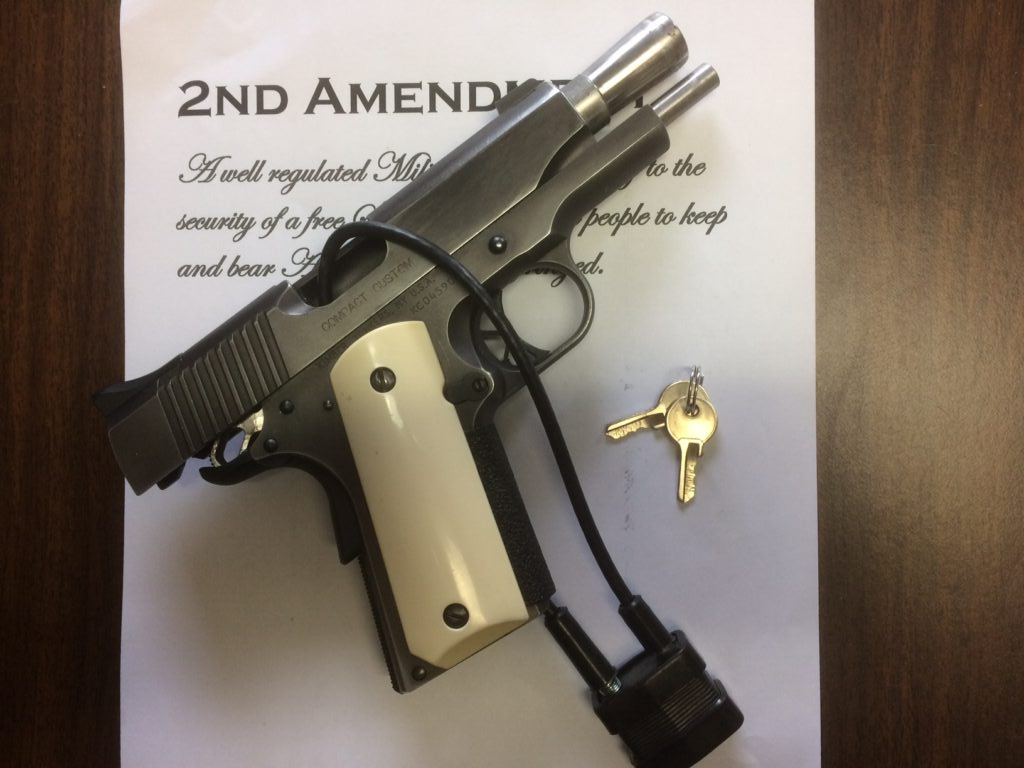
By Dave Workman
Editor-in-Chief
Earlier this week, a jury unanimously found Jennifer Crumbley, the Michigan mother of school shooter Ethan Crumbley, guilty of involuntary manslaughter in what NBC News called an “unprecedented case,” because she was held responsible for her son’s mass shooting rampage at Oxford High School in November 2021.
The case is not exactly without precedent. Last year, Deja Taylor, whose 6-year-old son used her gun to shoot his teacher in a Virginia classroom, was also prosecuted. In Taylor’s case, she pleaded guilty to felony child neglect and was sentenced to prison. She also drew a prison sentence of 21 months for using marijuana while owning a firearm, according to the Associated Press.
The question in both cases: Should parents be held responsible for the criminal actions of their minor children? Perhaps more precisely, when should parents be held responsible?
The circumstances in both cases have a couple of parallels. Both parents negligently allowed their children to access firearms. In the Crumbley case, according to the NBC report, “she and her husband gave their son a semi-automatic handgun as a gift in the days before the shooting, prosecutors said, (and) neither of them properly stored it.” In Taylor’s case, according to CBS News, her son reportedly told authorities he took his mother’s 9mm handgun from her purse, which was on top of a dresser by stepping on a drawer to climb up.
Crumbley’s husband goes on trial next month for his alleged part.
Among the NRA rules of gun safety is this: “Store guns so they are not accessible to unauthorized persons.”
The National Shooting Sports Foundation offers 10 rules, and Number 2 on the list says this: “Firearms should be loaded only when you are in the field or on the target range or shooting area, ready to shoot. When not in use, firearms and ammunition should be secured in a safe place, separate from each other. It is your responsibility to prevent children and unauthorized adults from gaining access to firearms or ammunition.”
Firearms instructors would call this “Gun Safety 101,” with this caveat: There should always be quick access to a firearm in an emergency, and it can be argued that keeping guns locked up essentially defeats that purpose.
Grassroots activists might worry that both cases will be used to push more gun control laws, but wait; both Crumbley and Taylor were prosecuted under existing laws, and they obviously worked. The parents have been held responsible, and they were the only people in their respective courtrooms facing charges. The millions of other gun owners in Michigan and Virginia haven’t been accused of anything.
Isn’t that how it’s supposed to work; prosecute bad guys and leave good guys alone?
While nobody in the firearms community is hailing the Crumbley or Taylor case outcomes, there are lessons to be learned.
- Follow the simple safety rules established decades ago by genuine gun safety experts.
- If you’re called by school officials over the behavior or your child, take the youngster home, period. In Crumbley’s case, nobody apparently searched the boy’s backpack.
The Virginia teacher shot by Taylor’s son has filed a multi-million-dollar lawsuit against the school system, alleging gross negligence “for failing to respond aggressively to multiple warnings the child had brought a gun to school that day,” the Associated Press reported.
Parents of the four victims at Oxford High School in Michigan have also filed a lawsuit against the school system, according to the Detroit Free Press, and a second lawsuit was filed last fall by one parent against the Michigan State Police, the Detroit News reported.
WJBK in Detroit is reminding listeners that Michigan’s new “safe storage” law takes effect Feb. 13. Under this new law, gun owners with children living in the home are required to lock up their guns, with such things as lock boxes, cable locks or gun safes, the report noted.



